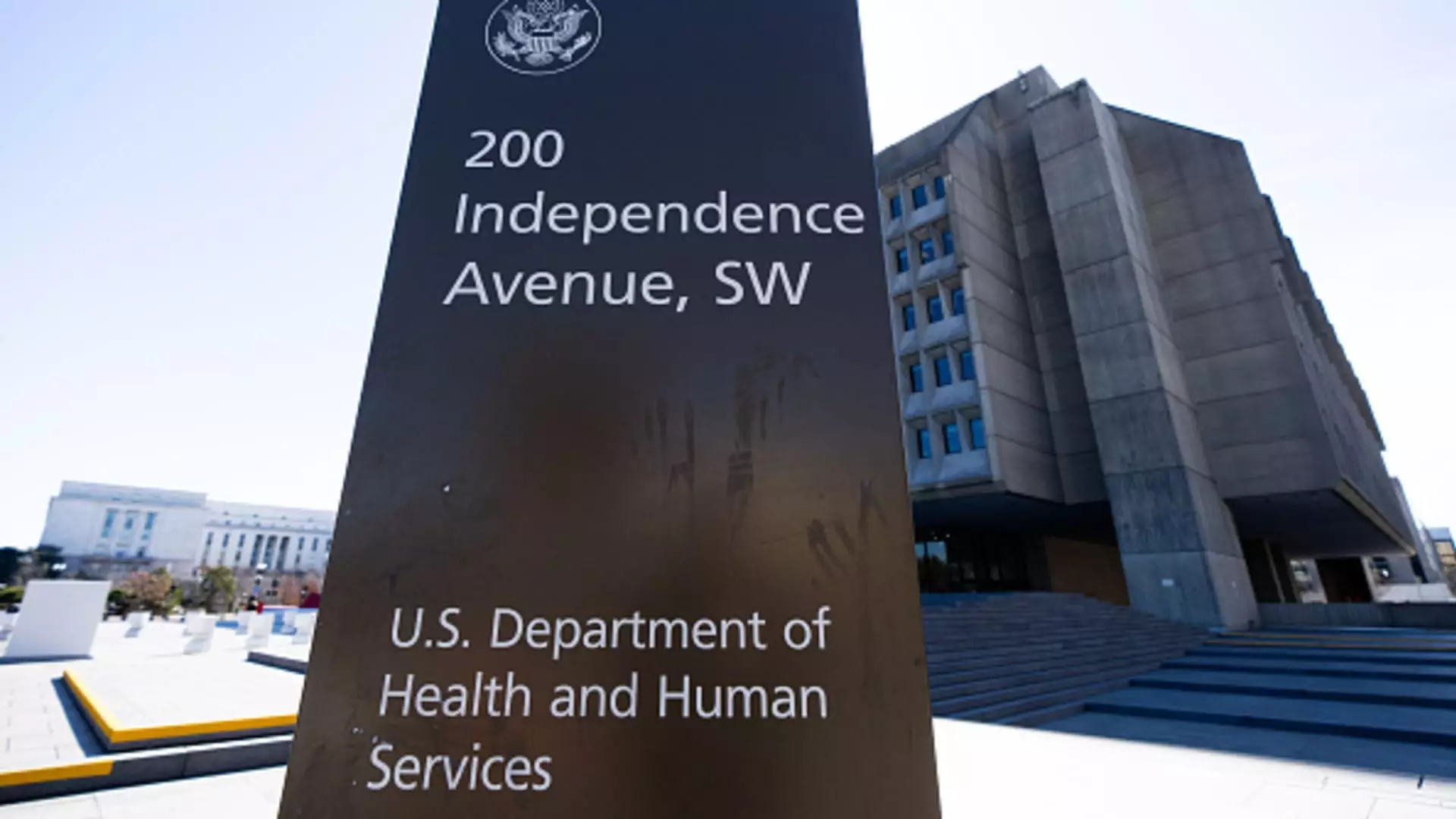The recent announcement regarding widespread layoffs at the U.S. Department of Health and Human Services (HHS) is not merely a standard bureaucratic shake-up; it’s a political gamble with consequences that could haunt Americans for years to come. With up to 10,000 federal employees facing dismissal as part of a sweeping overhaul spearheaded by Health Secretary Robert F. Kennedy Jr. and President Donald Trump, the fallout could jeopardize crucial health services and pandemic preparedness. The stark reality is that while the administration touts efficiency, the actual sacrifice of human lives hangs precariously in the balance.
Historically rooted in a mission to monitor public health, track disease outbreaks, and ensure the overall wellbeing of Americans, HHS’s transformation is an unsettling example of governance being driven by ideology rather than the public good. The consolidation of agencies under the new “Administration for a Healthy America” raises red flags. This move consolidates substantial funding and power into a singular office, likely exacerbating the existing health crisis rather than resolving it. Can we really trust that fewer resources will lead to better outcomes, especially when the rationale behind these layoffs is shrouded in vague promises of increased efficiency?
The Cost of Budget Cuts
Democratic Sen. Patty Murray’s grave warning that these cuts might leave the U.S. woefully unprepared to combat infectious diseases or respond to emergencies deserves our undivided attention. At a time when public health threats appear to be on the rise—just look at the resurgence of illnesses like measles—diminishing our capability to respond effectively is tantamount to playing Russian roulette with the health of our communities. By cutting a workforce essential for monitoring and combating disease, the administration appears to be setting the stage for a public health disaster.
The layoffs are symptomatic of a deeper systemic issue rooted in a philosophy that views government intervention as a hindrance rather than a help. For example, HHS’s plan to cut 3,500 jobs from the Food and Drug Administration and significant roles at the Centers for Disease Control and Prevention (CDC) is glaringly misguided. These organizations play vital roles in preserving public safety related to food, drugs, and overall health. Reducing their capacity while underfunding local health departments will inevitably lead to job losses and reduced community health services. The unsettling question becomes: who picks up the slack when disaster strikes?
A Quest for Efficiency or a Power Grab?
The rhetoric from the administration suggests a desire to eliminate inefficiencies within the sprawling bureaucracies of our health departments. Yet, one cannot help but feel that this quest for efficiency is more a pretext for consolidating power than a genuine concern for the health of Americans. The elimination of collective bargaining rights, particularly within health agencies, dismantles the very protections that ensure efficient and accountable governance. Undermining unions essentially paves the way for unchecked authority by management, leaving workers stripped of their voices at a time when they most need those protections.
The executive order signed by Trump to erode collective bargaining rights across numerous federal agencies reveals a trend of prioritizing political agendas over the welfare of the citizens. By dismantling the framework that gives workers a say in their employment conditions, the administration seems intent on ensuring that civil servants lack the agency to contest policies detrimental to public health.
The Ripple Effect on Local Health Systems
The impact of these layoffs and funding cuts will resonate far beyond the walls of HHS. As state and local health departments grapple with a loss of over $11 billion in COVID-19-related funds, the implications for local communities are dire. The National Association of County and City Health Officials has already indicated that hundreds of jobs could be lost in these health departments, many of which have already faced unprecedented pressure during the pandemic.
This alarming trend threatens to deepen the divide in public health services, particularly in areas that most need robust health systems. The potential disruption of essential health services can lead to increased disparities, particularly among marginalized communities that often rely heavily on public health programs. As we witness the fallout from these catastrophic cuts, the question emerges: are we truly willing to gamble with the health of our population for the sake of an ideological agenda?
In an increasingly complex world where health threats loom larger than ever, defending the rights and resources of public health workers isn’t just a matter of labor rights; it is essential to the wellbeing of society as a whole. The current trajectory of the HHS overhaul raises crucial concerns that should ignite fervent public discourse about the role of health policy in safeguarding American lives.

